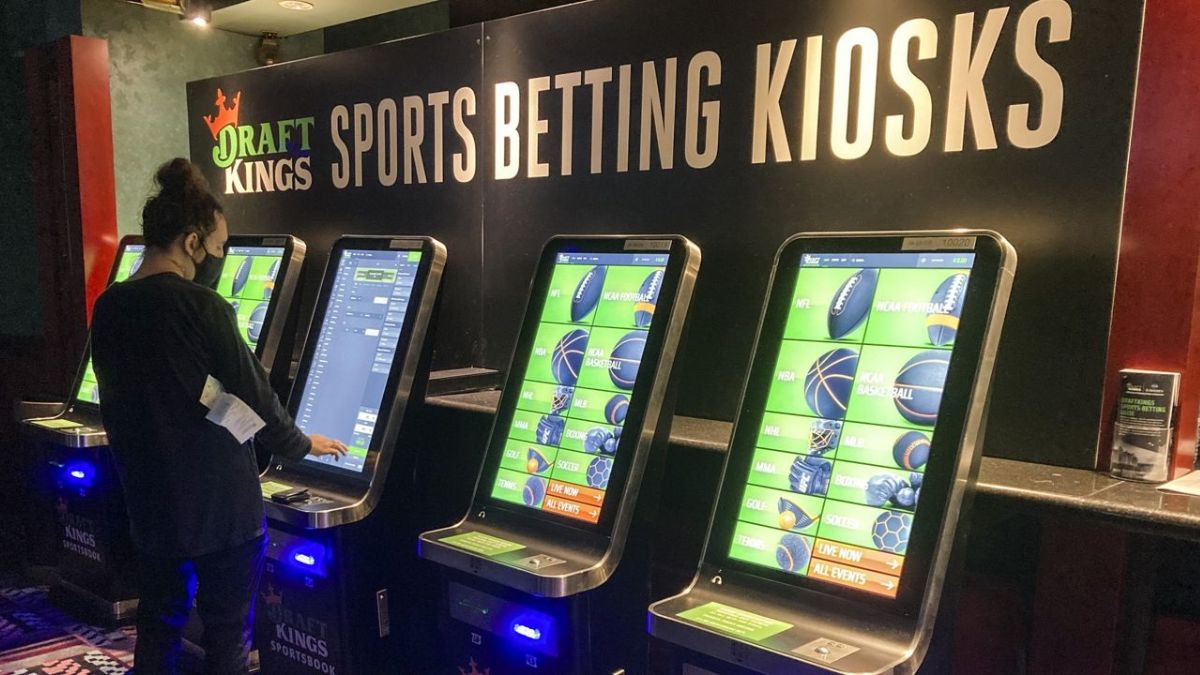

Betting on the Final Four: The Scourge of Sports Gambling
The addiction of gambling hits not just in dollars, but in human lives.
04/8/25
John Stonestreet and Shane Morris

This past weekend, Houston, Auburn, Florida, and Duke battled it out in the Final Four in what is considered the event of the year for hoops enthusiasts and a second Super Bowl for sports gamblers. In fact, this year’s tournament featured commercials in which the NCAA discouraged gamblers from harassing players in person and online, as well as several games in which players were loudly criticized for either scoring or not scoring late in the game. This had nothing to do with principles of good sportsmanship but for what the last-minute behaviors meant for the over/under.
An estimated $3.1 billion was expected to be legally wagered on this year’s tournament, a 12% increase over last year. During First Round games in Denver, I personally witnessed fans (all young men, to be specific) loudly cheering and booing the score of a game already decided, not because their favorite team had won or to honor an outstanding performance by a player. They were rooting for the spread.
America is only a few years into widespread legalized sports gambling, but the results are in. This industry is devastating for individuals and families, and is corrupting sports. In an article for The Atlantic, Charles Fain Lehman stated the truth bluntly: “Legalizing Sports Gambling Was a Huge Mistake.” More and more data supports his claim.
Today, in 38 states plus Washington, D.C., there are no meaningful regulations for sports gambling. In 2018, the U.S. Supreme Court issued a decision that paved the way for states to regulate their own industries. Since then, sportsbooks have raked in over $300 billion.
Obviously, this money did not come from a preponderance of winners. In fact, Lehman argued, the return of sports gambling “has caused a wave of financial and familial misery” that “disproportionately falls on the most economically precarious households.” In other words, those who have the least money to lose do the vast majority of losing.
The damage is enormous. For every dollar spent on betting, household investing fell by an average of two dollars. Since 2018, there have been large increases in over-drafted bank accounts and maxed-out credit cards. Legalized sports gambling has increased “the risk that a household goes bankrupt by 25 to 30 percent,” and it has caused debt delinquency to surge.
This financial strain, in turn, worsens social pathologies. According to research cited by Lehman, an upset loss for an NFL home team correlates to a 10% spike in male domestic abuse. Overall, states with legalized sports gambling have seen an estimated 9% increase in “intimate-partner violence.”
Given this data comes from the same states just a few years apart, it is highly unlikely these correlations are mere coincidences. Sports gambling is causing financial ruin and domestic violence in homes. As Lehman put it, measuring this industry is more than counting dollars and cents. It is counting the cost to human lives, especially to women and children dragged into a destructive and addictive pastime.
In the age of smartphones, betting has become easier than ever. Wagers can be placed on virtually all aspects of a game, from individual pitches to how long the national anthem lasts. People can make bets from home without traveling to the seedy part of town. Notifications in eye-catching apps and a deluge of catchy ads with false promises open the industry to people who might never have otherwise gambled.
And legalized sports gambling corrupts sports. Tennis players, Olympians, and NBA referees have all been caught fixing games and matches. Last year, the NFL suspended five players for gambling-related violations, and a Sportradar analysis found a 250% year-over-year increase in suspicious matches in basketball alone. Since the beginning of the year, college basketball players from Fresno State and the University of New Orleans were suspended for gambling violations, as was an umpire from Major League Baseball. My experience is that it has also corrupted the fan experience. My time in Denver was negatively impacted by a young man who yelled for two straight games, not for or against either team that was playing, but at the referees who, he believed, were fixing games so he would lose his bets.
According to Lottery USA, the odds of winning the Mega Millions jackpot are one in over 302.6 million. Powerball is roughly one in 292.2 million. For comparison, the odds of being struck by lightning in a given year are about one in a million. The odds are only slightly better in sports betting because, as the adage goes, “The house always wins.” Sportsbooks don’t make $300 billion in six years by minting millionaires out of their customers.
The national experiment with sports gambling has failed miserably. Laws are often necessary to protect freedom and the common good. Though “consenting adults doing what they want with their money” sounds like freedom, it is as misleading as the idea of “consenting adults doing what they want with their bodies.” In both cases, poorly defined freedom enslaves, addicts, and harms others. In both cases, so-called “consent” is anything but consensual for the innocent parties dragged along, and whose lives are ruined as a result.
This scourge of an industry is based on a distorted view of freedom that leaves people in bondage. That should be more than enough reason for the American people to call off all bets and reverse on sports gambling, again.
Have a Follow-up Question?
Up
Next

Related Content

© Copyright 2020, All Rights Reserved.













